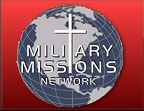Holidays offer great opportunities to start or strengthen relationships. The two holiest days in Islam are Eid ul-Adha and Eid ul-Fitr. Eid ul-Adha is the Feast of Sacrifice. It concludes the period set aside for the pilgrimage to Mecca called the Hajj, and it commemorates Abraham’s willingness to sacrifice his firstborn son. Eid ul-Fitr is the Feast of Breaking the Fast. It concludes the fasting month of Ramadan during which Muslims refrain from eating and drinking during daylight hours. Both of these times of feasting and celebration start at sunset and last for two or three days. Here are some ideas for leveraging this feast day in your relationships.
1. It is a time of giving sweets to each other and to children. Give your friend or neighbor a plate of candy, cake, or cookies to help them celebrate.
2. It is a time of giving small gifts to children. Give your friend or neighbor something simple for the children.
3. It is a time for holiday greeting card exchange. Give or mail your friend or neighbor an “Eid Mubarak” greeting card. You can make this yourself with images collected from the Internet or you can order one from a dealer on the Internet.
4. It is a time for sending text-message and e-mail holiday greetings. Send your friend or neighbor an “Eid Mubarak” or “Happy Feast Day” e-mail or text-message as they begin their celebrations.
5. It is a time when Muslims drop in on each other (often with house gifts). It’s a time when they expect and are prepared for visitors. These holidays are good times to visit your Muslim friend or neighbor to introduce yourself or build your relationship. You won’t necessarily need an appointment, but they may be out doing their own spontaneous visiting.
6. It is a time when Muslims ask for forgiveness from one another for any unspecified offenses that they may have committed against each other during the preceding year. Ask your Muslim friend or neighbor for general forgiveness on these days. Do not mention any specific offenses! Say something like, “If I’ve done anything to offend you in the time that we’ve known each other, will you please forgive me?”
7. It is a time of heightened religious awareness and instruction. It is a good time to ask questions about Islam and Muslim culture, especially about the holiday. However, do not criticize or try to speak knowledgeably about Muhammad or Islam. “Stay in your lane!” You may present yourself as the subject matter expert on Jesus, Christmas, and communion. Let them be the subject matter experts on all things Muslim.
Finally, in thoroughly unevangelized lands, some Muslims meet Jesus in visions and dreams (MoreThanDreams.org). Jesus-in-you, however, may be the only Jesus your Muslim friend or neighbor can be expected to ever meet. Jesus may want you to go out of your way so that he can meet some of your friends and neighbors who he would otherwise never get to know.







 http://www.faithandwar.org
http://www.faithandwar.org Mark Durie's Blog
Mark Durie's Blog Military Missions Network
Military Missions Network The Christian Fighter Pilot
The Christian Fighter Pilot The Navy Christian
The Navy Christian
I did some research on the internet and came up with the following information:
Eid al-Adha (Arabic: عيد الأضحى ‘Īdu l-’Aḍḥā) “Festival of Sacrifice” or “Greater Eid” is a Muslim Holiday celebrated by Muslims (including the Druze) worldwide to commemorate the willingness of Ibrahim to sacrifice his son Ismael as an act of obedience to God.
Here is my question:
If this is the root of the holiday for Muslims, and it is the opposite of what exactly occurred (since it was Isaac who Abraham was called to sacrifice), then what does it mean when we ‘friend’ them on a holiday that celebrates a lie and is foundational to their religion? Wouldn’t some, if not a lot of our ‘friending’ communicate to our Muslim friends (and they CAN be friends) that we are ‘honoring’ the lie?
Bob,
That is a great question! You have to be true to your convictions, but also remember it is to our own master we stand or fall (Ro. 14:4). This situation is similar to the eating meat offered to idols situation that Paul wrote about in his letter to the Romans.
If our testimony as Christians is clear and strong, then Muslims are not going to think that we are embracing the Muslim meaning of their holiday for honoring them on it. These kind of friendly gestures do not make us Muslims or compromise our own convictions.
On the other hand, if our testimony is weak so that such gestures invite confusion about whether or not we are following Jesus, then it would be better not to develop this kind of friendship at all.
Jesus gave us a good example of how having a clear testimony enables us to build bridges to all kinds of people without being tainted by beliefs and behaviors that are contrary to our own.